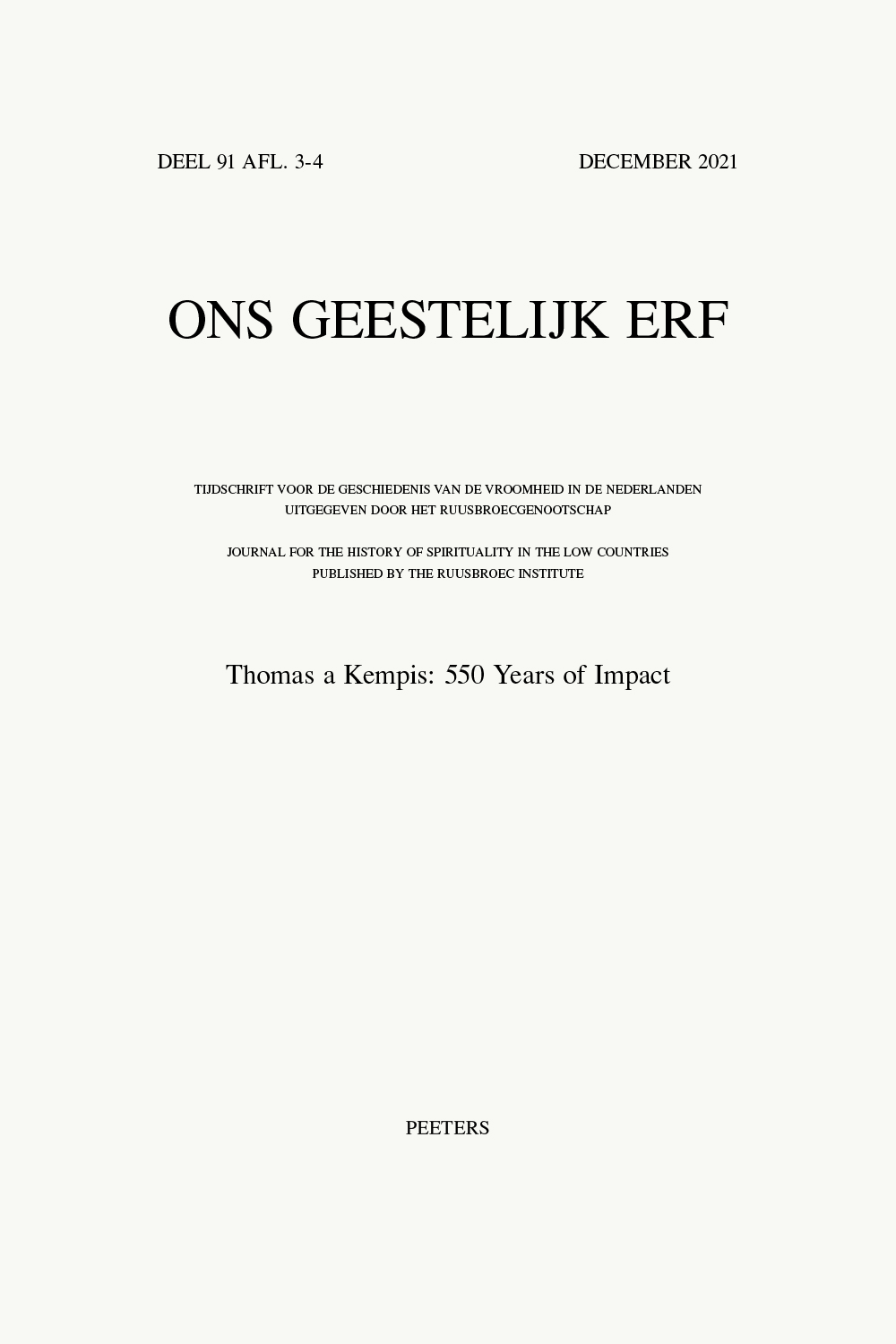 previous article in this issue previous article in this issue | next article in this issue  |

Preview first page |
Document Details : Title: Voor wie het leest of hoort lezen Subtitle: Over de betrokkenheid van de Amsterdamse begijn Aeltje Jans vande Poel bij de totstandkoming van een bundel preken van Leonardus Marius Author(s): SANDERMAN, Anneke Journal: Ons Geestelijk Erf Volume: 84 Issue: 2-3 Date: Juni-September 2013 Pages: 290-310 DOI: 10.2143/OGE.84.2.3007273 Abstract : In the early seventeenth century, Leonardus Marius was the religious father of the beguines in Amsterdam. Although catholic preaching was formally prohibited by the protestant municipality, Marius was permitted to preach for a group of about fifty beguines and some inhabitants of Amsterdam. His sermons have been written down in two different manuscripts (University of Amsterdam, XXV C79 and XXV C74), and two other sermons were found in a compilation of printed and written texts (Utrecht, Museum Catharijneconvent, BMH h88). In one of these books (XXV C79) the name of a feminine author is mentioned: Aeltje Jans vande Poel. Knowing the recent study of Stoop (2012), who proves that in Brussels different women fulfilled different stages of sermon writing, the question is to which extend Aeltje was indeed responsible for the content of the written sermons. Compared to the other sermon book (XXV C74), Aeltjes manuscript is more personal here and there. The copyist, who might be Aeltje herself, added some personal notes and comments to Marius’ sermons. There also are entire paragraphs that are not recorded in the other book of sermons. This article examines what the differences are between the three conserved versions of Marius’ sermons, and what those differences might say about Aeltjes influence on the creation of the manuscript. Furthermore, based on the content of the sermons in Aeltje manuscript, I try to find out with what purpose Marius’ sermons have been written down. He, standing in the tradition of the Modern Devotion, stressed the importance of personal meditation. The manuscripts have been made as an act of meditation itself, and to improve the reading of the sermons and the meditation on them. |
|


